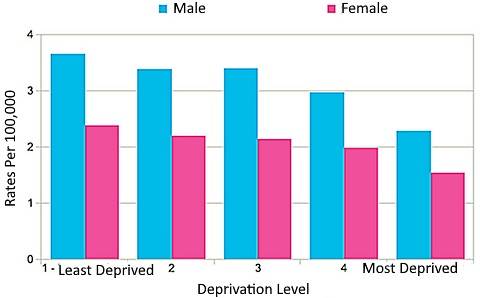No Age Barrier
We were impressed by the video, made by a group with personal experience of melanoma. Their message is important, with the growing incidence of skin cancer in young people.
The origins of this are increased sun exposure and use of tanning beds. There are other rare causes but skin cancers of all types are primarily due to UV rays, which mutate the DNA in our skin cells.
Whilst melanoma can be the most deadly, basal, or squamous cell carcinoma have the same cause and are also undesirable. Neither are there any ultimate barriers, in terms of age, ethnicity, or gender.
The answer to our question is that we can all get skin cancer. This may peak in our 50s, or 60s but being any age is no assurance, neither is dark skin, being used to the sun, or not having moles.
Additional Risk Factors
Ensuring everyone appreciates they are at risk is critical. We all need to check our skin and seek professional advice when there’s an issue, yet there are factors which increase the likelihood of skin cancer:
- A notably larger than average number of moles.
- Previous incidences yourself, or in your family.
- New moles appearing, or changes to current moles.
- Long term sun exposure, sun lamp, or sunbed use.
- Failing to use protective clothing, or sunscreen.
Each year in the UK, there are over 150,000 cases of non melanoma skin cancer. They are mainly behavioural in origin and not always accounted for by these factors but the extra risk is confirmed by research.
Available data also busts the myth that more men, or women get skin cancer. There is not so much difference in terms of incidence but there is in outcome.
Avoiding Severity
The most straightforward way to ensure skin cancer remains a minor problem is to seek early diagnosis. Cure rates of even the worst types are close to 100% at stage one, by stage four, 5 year mortality is around 70%.
The graphic below shows the UK mortality rates for melanoma and demonstrates inherent reasons:

Unlike the majority of cancers, skin cancer is more prevalent in the least deprived. A result of more overseas holidays, or business trips.
An equally clear aspect is the high mortality rates in men. Upper body exposure plays a part but the core reasons are they are less likely to check their skin, or see a doctor, or protect themselves.
For both sexes and all ages, protecting yourself is valuable. Sunscreen works, close weave, darker clothing protects, as will a broad brimmed hat and wrap around sunglasses, along with time in the shade.
The Message To Share
No one being invulnerable to skin cancer is the first part. Being tanned doesn’t protect you, having darker skin reduces the risk numerically but far from completely and the prognosis may be worse.
The second part is the most important, don’t be afraid of having skin cancer. Advanced treatment techniques can see this gone with minimal fuss, as long as you take action and find prompt support.
Patients with any form of facial skin cancer, or even the possibility of this are welcome at our clinic. Peace of mind can follow and if treatment is needed, this will be tailored to your needs.
For other skin cancers, or if you are elsewhere, please find a good clinic if you have concerns. Skin cancer is often not a severe condition, unless you let the passage of time make this happen.
- Make an appointment
- Phone – 020 7935 8627
- Email – pa@shakib.org


